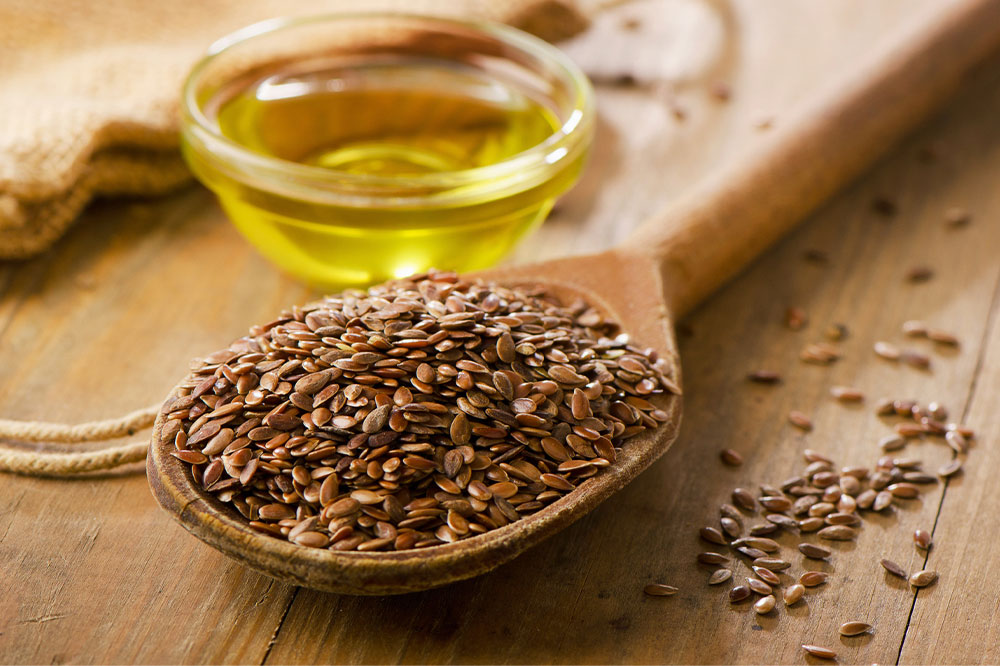
10 foods that naturally reduce blood sugar
Stress, physical activity, and lifestyle habits can affect the management of diabetes and other conditions that impact one’s blood sugar levels. But nutrition is perhaps the most crucial factor. Eating the wrong foods at the wrong time can spike glucose levels and lead to other complications. On the other hand, research suggests that certain foods can help lower blood sugar levels and should, therefore, be included in the meal plan.
Flax seeds
Flax seeds contain fiber and healthy fats that help control blood sugar levels. Research shows that adding around 30 grams to daily meals can help maintain blood glucose.
Broccoli
Rich in sulforaphane, broccoli has been shown to lower blood glucose and enhance insulin sensitivity, making it healthy for diabetics.
Shellfish
Shellfish are excellent sources of protein, antioxidants, vitamins, and minerals. Their high antioxidant content is particularly helpful in regulating blood sugar levels.
Salmon
Salmon is another seafood that can reduce glucose surges and slow down digestion. Its omega-3 fatty acids also help with several other health disorders.
Oats
Oat bran is rich in soluble fiber, which can control fasting blood sugar levels, especially in type 2 diabetes patients. Oats are a perfect breakfast or post-workout option.
Chia seeds
As per a study published in a reputed health journal, chia seeds have been proven to improve insulin sensitivity and reduce the risk of type 2 diabetes.
Nuts
Nuts like almonds, cashews, hazelnuts, pecans, walnuts, and pistachios are low in carbs and high in fiber, which helps regulate blood glucose.
Turmeric
Turmeric is a traditional spice that has been proven to lower inflammation, blood sugar levels, and the risk of heart disease, making it a perfect addition.
Cinnamon
Cinnamon adds flavor and improves insulin sensitivity and blood sugar levels. Besides adding cinnamon to dishes, those with diabetes may consider using supplements like GlucoTrust. It contains cinnamon and other natural ingredients, including licorice and juniper berries.
Berries
Strawberries, raspberries, blueberries, and blackberries are rich in antioxidants and tend to lower insulin and cholesterol levels after meals. Their sugar content is also lower than fruits like apples and bananas.
Besides choosing these foods, patients must follow a healthy eating routine. It is advisable not to skip breakfast since eating directly during lunchtime can cause glucose levels to spike. A protein-rich, low-carb breakfast helps slow digestion and increases blood sugar slowly after meals. A study shows that consuming approximately 500 calories with 35% protein for breakfast will likely help maintain sugar levels throughout the day. To monitor sugar levels at any point, one can use Roche’s Accu-Chek monitoring system, which displays readings in under four seconds.
Diabetes can be expensive to manage since Original Medicare does not usually cover it. So, getting a Medicare Advantage (Part C) plan from a Medicare-approved private company is advisable. Besides general diabetes expenses, it may cover doctor visits and suitable fitness programs. If necessary, one can also buy supplemental health insurance, such as a Medigap from UHC (UnitedHealthcare), to reduce expenses further.
Blood sugar spikes may sometimes be a result of therapies and vaccinations like Novavax. While joint clinical trials between the company and the government have deemed Novavax safe, diabetes patients should monitor their blood sugar levels for a few days after a dose.







